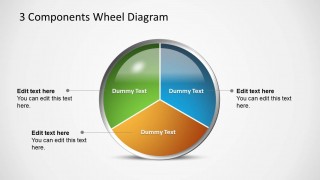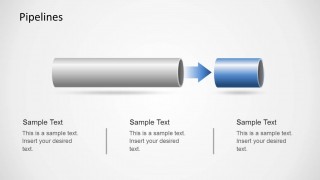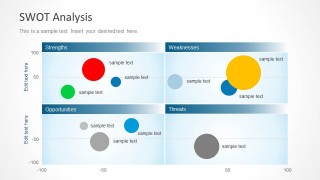Learn more how to embed presentation in WordPress
- Slides
- 7 slides
Published Mar 28, 2013 in
Business & Management
Direct Link :
Copy and paste the code below into your blog post or website
Copy URL
Embed into WordPress (learn more)
Comments
comments powered by DisqusPresentation Slides & Transcript
Presentation Slides & Transcript
Last updated on February 18, 2013 Goods and Services Tax (GST) is a consumption tax that is levied on the supply of goods and services in Singapore and the import of goods into Singapore. GST is an indirect tax, expressed as a percentage (currently 7%) applied to the selling price of goods and services provided by GST registered business entities in Singapore. It is also commonly known as Value Added Tax (VAT) in many other countries. What goods and services are subjected to GST? All goods and services are taxable and known as taxable supplies. However, some items are specifically exempt from GST by law. Exempted items include financial services and the sale or lease of residential properties. When is it compulsory to Register? Your business must be registered to collect GST if your annual turnover exceeds or is likely to exceed S$1 million from the sale of taxable goods and services. This requirement may be waived if most of your goods or services are exported or supplied internationally (223zero-rated supplies224). Can I choose to register? You may also apply to the Comptroller of GST to collect GST voluntarily. Approval for voluntary registration is at the discretion of the Comptroller. Once approval is given, you must remain registered for at least two years. Why should I register? Most businesses register for GST to claim back the GST incurred on their business purchases. When GST paid exceeds GST collected, the difference can be claimed from IRAS as a GST refund. When GST rate increase, it may make business sense to voluntarily register to collect GST in order to claim back GST incurred on business purchases. Who can register? Sole proprietorships Partnerships Limited Liability partnerships Companies Clubs, associations, management corporations or organizations Non-profit organizations Statutory boards Government bodies WHAT IS GST?
Last updated on February 18, 2013 HOW DOES GST WORK? GST is a broad-based consumption tax levied on the import of goods (collected by Singapore Customs), as well as nearly all supplies of goods and services in Singapore. The only exemptions are for the sales and leases of residential properties and the provision of most financial services. Export of goods and international services are zero-rated. In some countries, GST is known as the Value Added Tax (VAT). Standard-Rated Supplies (7%) Zero-Rated Supplies (0%) Exempt Supplies Out-Of-Scope Supplies Goods Most local sales would fall under this category. (e.g. sale of TV set in a Singapore retail shop) Export of goods (e.g. sale of laptop to overseas customer. The laptop is shipped to an overseas address by the supplier) Sale and rental of unfurnished residential property. Note: If you supply furnish property, the rent on the furnish item should be charged separate with GST where applicable. Sale where goods are delivered from overseas to another place overseas. Private Transacation Services Most local provision of services would fall under this category.E.g. provision of spa services to customer in Singapore Services that are classified as international services (e.g. air ticket from Singapore to Thailand - international transportation service) Financial services (e.g. issue of a debt security) It is compulsory for businesses to come forward to register for GST when their turnover exceeds $1mil per year. Businesses that do not exceed $1mil in turnover may register for GST voluntarily. After registration, businesses must charge GST at the prevailing rate. This GST that they charge and collect is known as output tax, which has to be paid to IRAS. GST incurred on business purchases and expenses (including import of goods) are known as input tax. Businesses can claim input tax if conditions for claiming are satisfied. This credit mechanism ensures that only the value added is taxed at each stage of a supply chain.
Last updated on February 18, 2013 WHAT IS TAXABLE TURNOVER? Taxable turnover is the total value of all taxable supplies made in Singapore (excluding GST) in the course or furtherance of business. This includes the value of all standard-rated (GST at 7 %) and zero-rated (GST at 0%) supplies but it excludes exempt supplies, out-of-scope supplies and the sale of capital assets. For the purpose of determining your liability for GST registration, the value of exempt supplies that are international services under Section 21(3) of the GST Act should also be excluded from your total taxable supplies. Tax turnover is determined by Including 1. Standard-rated supplies (GST at 7%) 2. Zero-rated Supplies (GST at 0%) Excluding 1. Exempt supplies (including those exempt supplies that are also international services under Section 21(3) of the GST Act) 2. Out-of-scope supplies 3. Sale of Capital Assets (e.g. sale of machinery)
Last updated on February 18, 2013 LIABILITY TO REGISTER FOR GST When am I liable to register for GST? You are liable to register for GST when your annual taxable turnover exceeds S$1 million or you are currently making taxable supplies and your annual taxable turnover is expected to exceed S$1 million. How to determine my liability to register? You can determine your liability to register for GST using the prospective or retrospective view. The table below summarises your liability to register, notification of liability and effective date of registration under each of the two views. (A) Retrospective View (B) Prospective View Your liability will arise if: At the end of any quarter * , where the total value of all your taxable supplies made in Singapore in that quarter and the previous 3 quarters have exceeded S$1m. If you expect that the value of your taxable supplies in the next 4 quarters will not exceed S$1m, you are not required to be registered. However, please note that if the value of your taxable supplies for the next 4 quarters subsequently exceeds S$1 million, the Comptroller will backdate your GST registration. At any time, if there are reasonable grounds for believing that the total value of your taxable supplies in the next 12 months will exceed S$1m (You must be currently making taxable supplies to come under this basis. Otherwise, you should apply for voluntary registration). You are required to apply for GST registration: Within 30 days of the end of that relevant quarter*. Within 30 days from the date on which you made a forecast that your taxable turnover for the next 12 months will exceed S$1m. Your date of registration will be: End of the month following the month in which the 30th day falls. End of 30 days from the date of your forecast. * Quarter means a period of 3 months ending on the last day of March, June, September or December. Note: You should commence charging GST with effect from the date you are registered for GST. GST paid on your business purchases and imports can be claimed from this date onwards.
Last updated on February 18, 2013 I am an overseas trader with no establishment in Singapore but I am making taxable supplies. Can I register for GST? An overseas trader who contracts to sell goods in Singapore can register in his own name. The overseas trader must appoint a local agent to be responsible for all GST matters, i.e. collecting GST on local taxable supplies made or filing GST returns promptly, etc. For the overseas trader to appoint a local agent, a letter of authorisation must be submitted together with the form GST F1 223Application for GST Registration224. Are there any GST Schemes to help businesses? To create a pro-enterprise environment, Singapore has several assistance schemes relating to GST. These schemes generally help to ease the cash flow for businesses. Goods and Services Tax Assistance Scheme Get a grant to lower the costs involved in becoming a GST-registered trader. GST traders can collect GST and claim back for GST paid to suppliers. Major Exporter Scheme (MES) Major exporters can improve their cash flow by deferring GST payments on goods imported mainly for re-export out of Singapore. Licensed Warehouse Scheme Transform your warehouse into a licensed warehouse for storing dutiable goods. In licensed warehouses, duty and Goods and Services Tax (GST) are suspended until the goods are released for sale into Singapore. Zero GST Warehouse Scheme (ZGS) Businesses can transform their warehouses into zero-GST warehouses to minimise red tape and bypass the GST process. Online Resources Singapore Goods & Services Tax | GST Registration | FAQ222s on GST GST FAQS
RIKVIN PTE LTD 20 Cecil Street, #14-01, Equity Plaza, Singapore 049705 Main Line : (+65) 6320 1888 Fax : (+65) 6438 2436 Email : info@rikvin.com Website : www.rikvin.com Reg No 200100602K EA License No 11C3030 This material has been prepared by Rikvin for the exclusive use of the party to whom Rikvin delivers this material. This material is for informational purposes only and has no regard to the specific investment objectives, financial situation or particular needs of any specific recipient. Where the source of information is obtained from third parties, Rikvin is not responsible for, and does not accept any liability over the content. Helpful Links: Company Registration Singapore Work Visas Business Services Accounting Services Offshore Company
More Presentations

By singaporerikvin
Published Mar 27, 2013

By singaporerikvin
Published Mar 28, 2013

By singaporerikvin
Published Mar 29, 2013

By singaporerikvin
Published Mar 30, 2013

By singaporerikvin
Published Mar 31, 2013

By singaporerikvin
Published Apr 1, 2013





